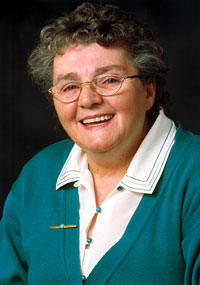5 February 2009 Edition
The Mary Nelis Column

‘Paradise lost’ and the 11-Plus
IN 1915, Pádraig Pearse, in a pamphlet entitled The Murder Machine, described the British system of education in Ireland as grotesque and a violation of human rights. He concluded that it reduced children and people to “mere things”.
In the Assembly on Monday, Education Minister Caitríona Ruane announced her intention to abolish the ‘educational murder machine’ in the North, the 11-Plus, and replace it with a system of academic and vocational opportunity to enable children to reach their full potential in personal development and choice of careers.
Her eminently sensible proposals were arbitrarily dismissed by collective unionism, still hankering after a return of old Lord Brookeborough’s golden days in a Stormont long gone by.
Collective unionism, led by the DUP, is prepared to sacrifice its children on the pretence that the retention of the 11-Plus gives them a degree of privilege over Catholics, despite evidence that academic selection has failed the majority of children in Protestant working-class areas.
Even if the SDLP held the education ministerial post, they would face the same DUP resistance and blocking tactics as Caitríona Ruane.
There is no doubt that the negative response to the minister’s proposals by the SDLP has helped to give political cover to the reactionary unionists of the DUP.
For SDLP spokespersons to state that the proposals are “nothing new” or that Caitríona Ruane has not consulted or entered into dialogue with the opposition is mischievous, to say the least, but most people will see such negative utterances as the usual sniping from the sidelines of a party that hadn’t the guts to take the educational brief.
What the SDLP and the unionists appear to have forgotten is that all the teachers’ unions support the minister’s position.
In addition, reports by eminent educationalists and academics, including Burns and Costello, recommended that no school should be permitted to use academic selection criteria for children’s admission to second level education.
There is no doubt that the abolition of the 11-Plus has caused a rush of blood to the heads of some of the powerful, vested interests of the grammar school lobby, led by the quaintly-named Association for Quality Education, who have been joined in their pursuit of ‘paradise lost’ by some of their Catholic counterparts.
Nowhere else in Europe is there a system of education that has perpetuated such inequality and division that many would argue has contributed in no small to the conflict of the past 40 years.
To put it simply, the transfer system in place for the past 60 years has given up on generations of children, a scandal that many in the grammar school lobby refuse to concede.
Caitríona Ruane knew that her proposals for profound educational change were about more than post-primary transfers and that education needs to adapt to the rapidly-changing world of the global village and an ever-growing technical and complex society. In this respect she asserted that there is no place for selfish values and individualism or the preferential treatment of the more affluent.
The stark reality is that less than 35 per cent of young people in the North progress to third-level education in comparison to around 60 per cent in the South.
Despite having to deal with slurs and threats on her personal and political integrity, and the dirty dealings of those resistant to change, the majority of educationalists and parents are supportive of her proposals.
What we witnessed in the Assembly on Monday was the outworking of a society so infected by the educational elitism and political sectarianism of a minority of politicians and academics that they are incapable of creating an alternative.


